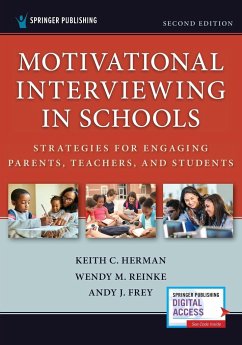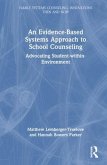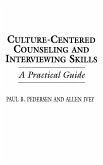Note to Readers: Publisher does not guarantee quality or access to any included digital components if book is purchased through a third-party seller. Praise for the first edition: "The authors of this book have made a very important contribution in producing a book that literally provides a roadmap for how to realize MI's potential in school and family contexts. They are the acknowledged leaders of MI in schools and deserve much credit for adapting this approach so well for effective use by educators...I recommend it unconditionally as an invaluable resource for today's related services professional." -Hill Walker, PhD, University of Oregon The second edition of this seminal reference is still the only book available that provides detailed, step-by-step guidance for using Motivational Interviewing (MI) to facilitate positive change in schools by working with parents, teachers, and students. Featuring readily accessible, proven strategies for promoting academic enabling behaviors, this text describes the defining principles, processes, and skills of MI. The new edition illuminates research-based strategies for building teacher, student, and parent engagement in school-based services, and identifies best-practice MI consultation skills, and tailors these interventions to the specific needs of teachers, students, and parents. Additionally, the book identifies methods for combining MI with other school-based intervention models as well as defining procedures for integrating MI within a school or across a school district. New to the second edition is the innovative coaching framework HomeBase, important literature updates on the science and practice of MI in schools, and expanded information on new applications of MI with students. The second edition also includes new strategies for motivating MI participants, MI applications with school problem-solving teams, and a major update to the sections on Learning MI and Monitoring Implementation Quality. Purchase of the print edition includes access to Ebook format.New to the Second Edition:Includes new HomeBase intervention program designed as a collaboration between parents and teachers to support children Delivers a new MI coaching framework Significantly updates sections on Learning MI and Monitoring Implementation Quality Reflects latest science regarding proper implementation of MI Expands coverage of MI applications with school problem-solving teams Includes strategies for learning and improving MI skills Provides new dialogues/scripts from successful parent, teacher, and student interactions Highlights specific interventions for gifted youth, applications for student self-monitoring and for support in alternative settings Key Features:Demonstrates how to apply motivational interviewing to K-12 to help school professionals improve effectiveness Delivers expert tips for working with challenging families, students, and teachers Covers implementation and dissemination strategies for learning MI and monitoring fidelity Includes abundant opportunities for practice Includes examples of MI that promote everyday conversations about change Provides dozens of handouts to use with students, teachers, and parents
Hinweis: Dieser Artikel kann nur an eine deutsche Lieferadresse ausgeliefert werden.
Hinweis: Dieser Artikel kann nur an eine deutsche Lieferadresse ausgeliefert werden.








